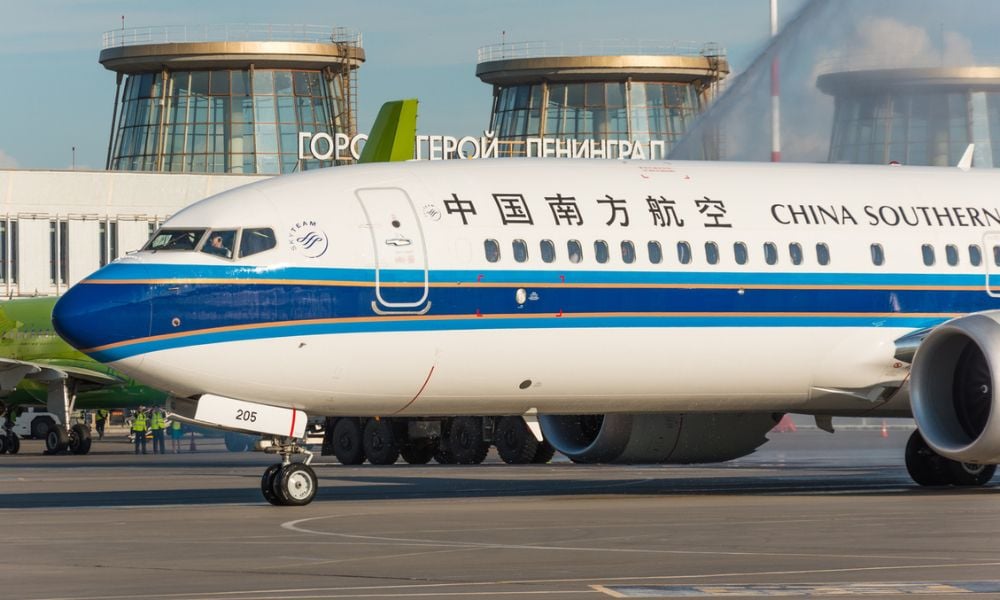
Supreme Court reveals company's 'pattern of firing senior employees without notice'

In a lawsuit against China Southern Airlines (CSA) in the Supreme Court of British Columbia, Zong Li Julie Zheng, a 57-year-old Chinese Canadian residing in BC, sought compensation for alleged wrongful termination.
Zheng's professional journey began with a hospitality and hotel management degree from Beijing City University in 1989. In 2002, she relocated from China to Canada with her family, embarking on a path of language courses and airline industry training.
From 2004 to 2010, Zheng served Air China in Vancouver, climbing the career ladder from a reservation and ticketing agent to a billing and settlement plan auditor, focusing on flights between Vancouver and China.
CSA, a major international airline under the Chinese government’s control, has publicly traded corporate shares on the Shanghai, Hong Kong, and New York stock exchanges.
Wrongful dismissal case
In January 2020, Zheng was examined in a wrongful dismissal case involving a co-worker. The arbitrator found the co-worker's dismissal was contrary to labour laws.
A day after she participated in the investigation, she was ordered to attend a meeting with CSA managers. They told her:
CSA did not provide Zheng with a reason for her administrative leave or their investigation. The staff also searched her belongings before she was allowed to leave the building.
According to records, she was "in a state of panic and anxiety at the meeting. She was humiliated and shocked by her treatment by CSA."
Moreover, after she got home, she had trouble talking, eating or sleeping. "She could hardly function. She could not sleep for more than three hours a day. These symptoms persisted over the Chinese New Year."
Zheng received several emails from CSA demanding the return of documents and threatening to search her home. She continued to advise them that she did not have any of their documents.
On 31 January 2020, CSA sent a termination letter to Zheng advising that her termination was because she had copied and sent out confidential CSA documents to third parties.
Shortly after, her psychiatrist diagnosed her with acute stress and PTSD symptoms from a sudden termination of work. She was recommended not to work for at least two months.
On 26 February 2020, CSA sent Zheng a letter demanding the return of confidential documents. A court application was threatened against her. In addition, CSA stated:
Zheng argued that she did not have any confidential information. The court found that the allegations made by CSA against Zheng were "baseless and false." It said there was "no reason to place Zheng on administrative leave."
The court said that CSA’s conduct "can properly be described as 'harsh, vindictive, reprehensible and malicious,' as well as 'extreme in its nature and such that by any reasonable standard it is deserving of full condemnation and punishment'."
"After what appears to be a pattern of firing senior employees without notice, CSA abruptly placed Zheng on administrative leave without providing her with a reason for doing so."
"CSA proceeded to make serious and false allegations against [her], conduct an adversarial and biased investigation of these same allegations and then damage her reputation in the industry following her termination."
“Zheng was highly vulnerable given her age and niche expertise,” the court said. Thus, after ruling that there was wrongful dismissal, it awarded her $75,000 for the damages she suffered.